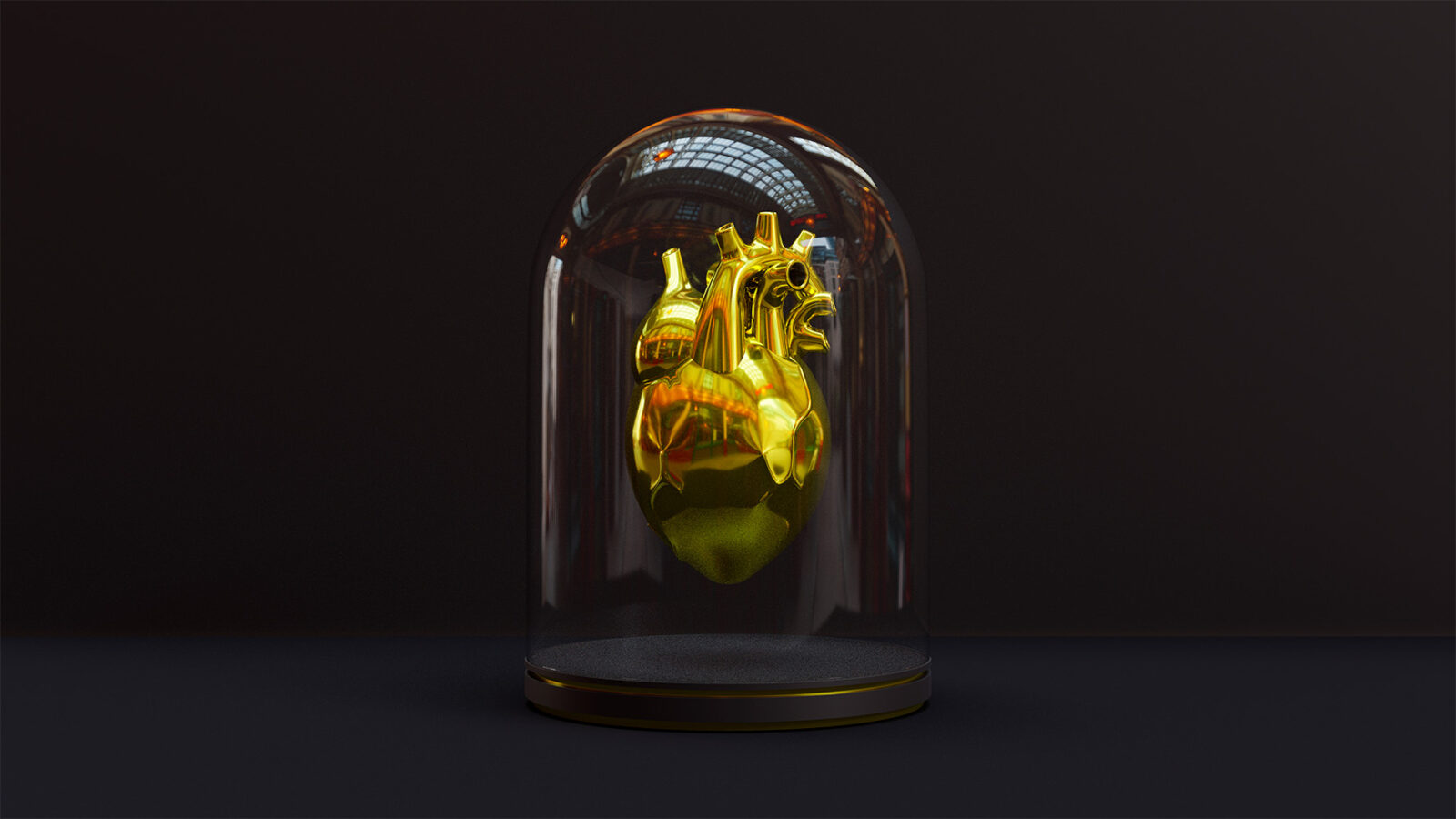Have you ever wondered how the heart became the embodiment of our feelings and emotions? Why when we experience rejection or loss we talk about our hearts breaking as if they’re a fragile piece of pottery or a freshly severed wound? Or why when we think of our future we consider the direction our hearts are nudging us to go?
It might make a little more sense if we replaced the heart with the mind or brain, but the heart is an organ that’s main role is to pump blood through the body. Yet cultures around the world have revered it as the emotional seat of the soul: a symbol of love, romance, sadness, fear and courage.
We don’t always have a positive association when we think of the heart from a biblical lens. The verse that often gets cherry-picked when someone is experiencing negative emotions is Jeremiah 17:9, which says the heart is “deceitful above all, irreversibly sick, who can even understand it?”
But this verse gets confusing when we read others like, “Trust in the Lord with all your heart” (Proverbs 3:5), and if you “believe in your heart that God raised [Jesus] from the dead, you will be saved” (Romans 10:9). How can the thing that helps us connect to Jesus and be saved also be the most deceitful thing? What does it mean if the thing we’ve invited Jesus into is also the thing we can’t trust?
When we think of our hearts, we tend to think of the place our feelings and emotions reside. For a long time, psychologists believed our feelings were purely mental expressions generated by the brain. But recent HeartMath studies show our emotions change the signals the brain sends to the heart and the heart responds in various ways.1 This explains our physical responses to emotional and mental reactions and why certain emotions stress the body and drain our energy. It also explains why some people experience tightness or pain in their chest or stomach when a relationship ends or a loved one dies.
Early in the musical parody Book of the Mormon there is a song that goes like this:
“When you start to get confused because of thoughts in your head, don’t feel those feelings! Hold them in instead. Turn it off, like a switch just go click! It’s a cool little
Mormon trick! . . . When you’re feeling certain feelings that just don’t seem right! Treat those pesky little feelings like a reading light! Turn it off!”
The song receives a lot of laughter from the audience because people can resonate. If you’ve been in the Church a while, you might have shared difficult feelings with someone and had them remind you of the condition of your heart, to just stop thinking about something or to quote Scripture until those negative feelings go away. Counsellor Jeff Schulte has observed that often in the church, “We demonise the very humanness of having feelings and see it as an obstacle to spiritual maturity. We believe to be spiritually mature we have to somehow not let our feelings get to us.”
Unlike modern psychologists, the Ancient Israelites mentioned the heart as an organ because they had no concept of the brain. They imagined all human intellectual activity took place in the heart. It was where you thought and made decisions; experienced emotions like pain, fear, distress, rejection and joy; and made choices motivated by desires.2 Essentially, they saw the heart as the centre of human existence, as posed in the well-known proverb, “Guard your heart because from it flows your whole life” (Proverbs 4:23).
In the Bible, the heart represents more than our feelings and emotions. The word “heart” can be translated several ways and is mentioned over 800 times. When the Bible speaks of our heart, it’s considering three things:
our mind: our thoughts, beliefs, understanding, memory, judgement, discernment and conscience
our affections: our longings, desires, feelings, imaginations and emotions
our will: the choices, actions and decisions we make
When God warns us about our deceitful hearts, He’s telling us not to blindly follow our affections. We know our heart’s desires can dupe us and send us down the wrong path and that, at times, we have an appetite to do unreasonable or wrong things. That’s why we need to balance our desires by bringing our minds and will into harmony, check ourselves and acknowledge that our hearts aren’t unfailing compasses. We are a people in progress who still need God’s guidance.
What makes us emotionally unhealthy individuals is not the presence of negative emotions but what we do with them. Our instinct is to shun, avoid or pretend they’re not there, and when we’re told our hearts are deceitful, that can seem like the wisest thing to do. In his book Permission to Feel, psychologist Marc Brackett says when we deny ourselves to feel “we lose the ability to even identify what we’re feeling . . . we go a little numb inside. When that happens, we’re unable to understand why we’re experiencing an emotion or what’s happening in our lives that’s causing it.” Such is the result for the characters in The Book of the Mormon musical.
When we suppress or ignore our feelings, a long list of unwanted outcomes will likely unfold. Externally in things like anger or blaming and internally in health problems. In extreme cases, repressed emotions and desires can lead to psychological or physiological breakdowns if kept unchecked or formed into a habit.3 We need to learn to know our feelings, pay attention to them and make friends with them. When we do so, we will prevent them from having undue influence over our actions.
Across translations, “heart” is one of the most used words in the Bible, which shows us the level of care and concern God has for them. Yet as evidenced in science, psychology and Scripture, the human heart is incredibly complex and far more than just deceitful. We would be fools to live from our affections alone, but we would also be fools to ignore everything else that our hearts are trying to tell us. When we bring our affections, mind and will together and align them with God’s truth, our hearts can be an asset to ourselves and others.
Musician Mike Donehey said, “Emotions are not our enemies. They are like doorposts inviting us to come in and look and see what’s behind those emotions . . . gifts that we can explore and be curious about, not enemies we need to defeat or defend.”4
So next time you’re tempted to disregard your heart or turn the light off on your feelings, maybe don’t. Leave the light on. Call upon your mind and will, and God’s too. Explore. Dig up what’s inside and see what it’s all trying to tell you.
1. www.heartmath.org/resources/infographic/mysteries-of-the-heart/.
2. youtube.com/watch?v=aS4iM6KpPYo.
3. Brackett, M. (2019). Permission to Feel: unlocking the power of emotions to help our kids, ourselves, and our society thrive. New York, Celadon Books.
4. podcasts.apple.com/us/podcast/emotions-are-not-the-enemy/id1543807168?i=1000509652505.






